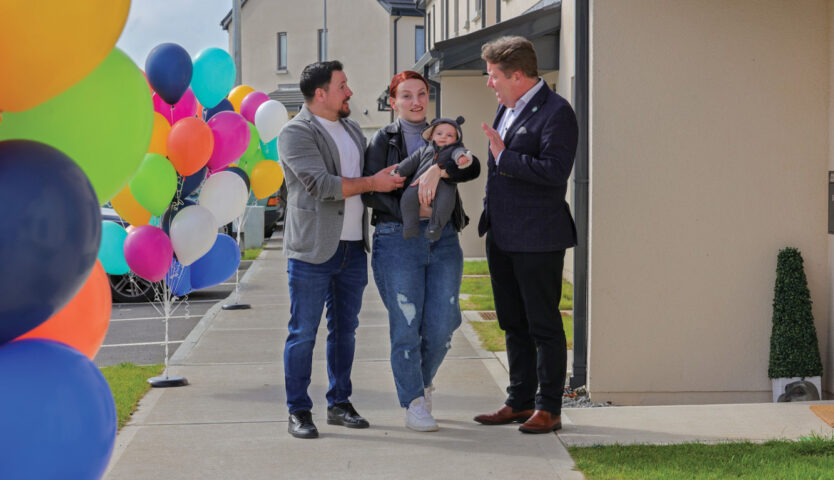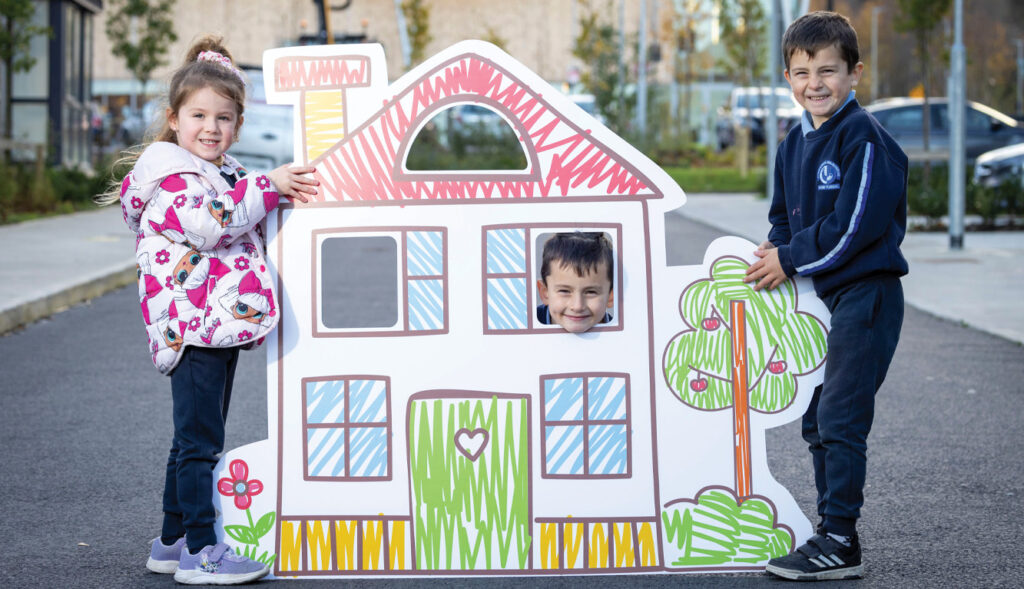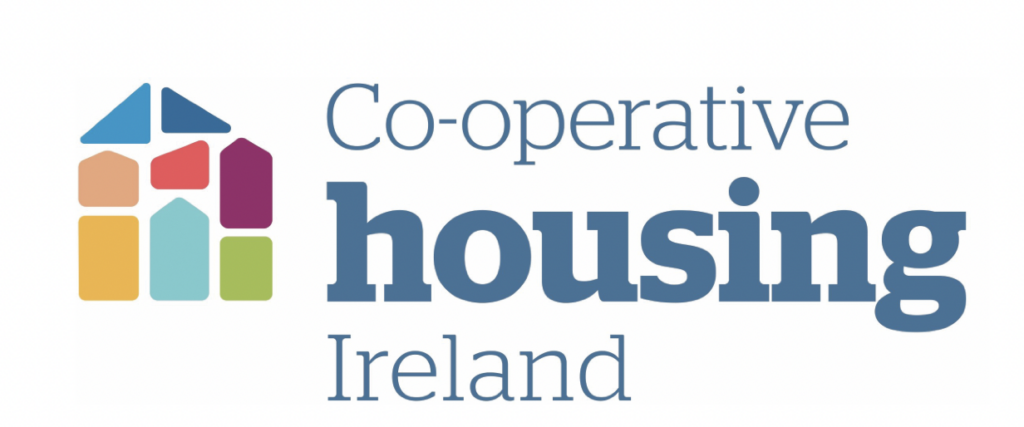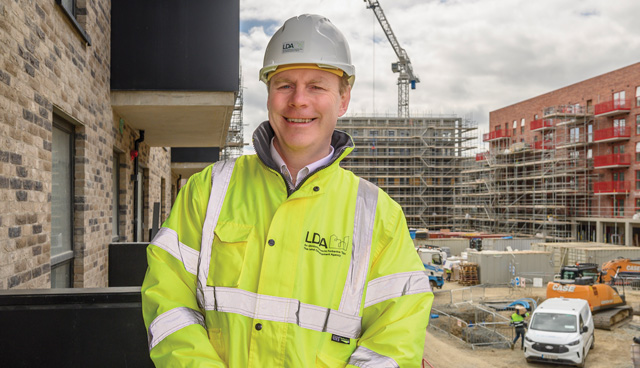
MMC: A modern solution to Ireland’s complex housing needs
3rd July 2024
Homelessness: An all-island challenge
3rd July 2024A co-operative housing model fit for Ireland

Minister Darragh O’Brien TD congratulated Co-operative Housing Ireland member tenants at the launch of 67 new social homes in conjunction with Focus Housing Association at Riverside in Castleisland, County Kerry in April 2024.
In more recent years, CHI has grown its capacity rapidly to support its burgeoning output and adapted to new regulations for AHBs as well as an ever-challenging building climate. With over 5,500 homes under its management and having supported 3,000 home ownership co-operative homes the organisation continues to focus on providing a quality service to its member tenants. Chairperson of CHI, Pearse O’Shiel discusses the important changes that have shaped the organisation since his appointment.
“The main change over the last five years is the introduction of the regulator and the response of the organisation to that. When that regulation was put on a statutory footing, we changed in response to those new regulatory requirements,” says O’Shiel. Increasing the organisation’s capacity through recruitment to meet the demands of housing management has been a consistent theme at CHI since O’Shiel’s appointment, he says, and will remain so in the coming years. “The organisation has grown rapidly in response to the housing crisis and its requirement. Matching growth with the organisation’s capacity and number of employees has been an ongoing task,” he says.
An important part of growing CHI’s capacity has been attracting the right type of personnel at every level, including the Board. This has been a key focus, especially addressing the introduction of new regulations for AHBs and the foundation of AHBRA in 2019. O’Shiel believes that the organisation is keeping on track with healthy growth and high performance across each strategy point. “According to our metrics our growth rate is in a very healthy state, and we’ve been able to respond effectively to the demands that have been put on us by the state in terms of the housing crisis and the Housing for All programme. The targets in Housing for All fall considerably short of housing need. This has been acknowledged by The Housing Commission and there is consensus that we need to ramp up the delivery of homes between now and 2030, particularly social homes, beyond what is originally planned.”
Thinking ahead, O’Shiel foresees the need for housing to adapt to the ever-changing world in which we live. “The housing crisis we’re responding to operates in an ever-changing system. The environment in which houses are being built consists of innumerable moving parts with energy crises, the war in Ukraine, access to finance, increased labour costs, and the lack of availability of skilled labour.”

Home is where the heart is — community development and co-operative values are a central component of CHI’s work.
O’Shiel believes community development and the co-operative values are a central component of CHI’s work: “Many aspects of life are being questioned, and I have a strong sense that in fact the co-operative model will be increasingly needed in these next few years, and I am very gratified that CHI is putting more emphasis on building communities and on community development, that is a very important part of our work, beyond the quantitative aspect, beyond the numbers, that those more human, more qualitative sides are getting attention.”
O’Shiel would like to see CHI lean into its co-operative identity more to maximise the number of people who can be supported by the opportunities the co-operative ethos presents. “We have been operating very successfully as an AHB over the last number of years. Yet the co-operative housing movement – as we see across Europe – can do more in meeting housing need regardless of income levels and housing tenure, for people not be eligible for social housing. I would like to see people over the social housing income threshold co-operate and utilise the co-operative expertise that CHI has, and that we make our co-operative knowledge available to them. This would require financial support from the state and would be great to see these people work co-operatively to explore solutions to their housing needs through land trusts with the support of CHI.”
“The co-operative ethos should be available to all, regardless of their income level.” Pearse O’Shiel, Chairperson, Co-operative Housing Ireland.
“I can imagine a future where children or the grandchildren of our member tenants look to come together and set up their own housing co-ops. They should be supported and could have direct access to CHI membership.” O’Shiel sees great opportunities within CHI’s structure to support its younger adult residents to work towards a future housing solution with a co-operative model. With an increasing number of young adults living with their parents today, O’Shiel believes a big picture view is needed. “We should support young adults living at home with their parents to identify people in the same boat who could work with them to overcome their collective housing needs. There are people already in our houses and in our communities who would move on from their home if they could be supported to co-operatively provide their own home.
O’Shiel believes that CHI can work towards supporting members in other endeavours outside of housing provision to strengthen the fabric of the communities they live in. He is interested in seeing more longer-term projects with a lasting social impact, for example, initiatives to support people to advance further in their education. “I think it is important to identify areas in our members’ lives that we could support them in. Education is a good way and looking at broader social questions. I think there are big questions around the rapidly changing environment and non-human life too as we move into the age of artificial intelligence. It will be interesting how that affects the workforce more generally, and, in turn, the lives of our members and their needs.”
For more information:
Contact details:
Co-operative Housing Ireland, 11-12 Warrington Place Dublin, D02 E221
T: +353 1 661 2877
E: admin@cooperativehousing.ie







